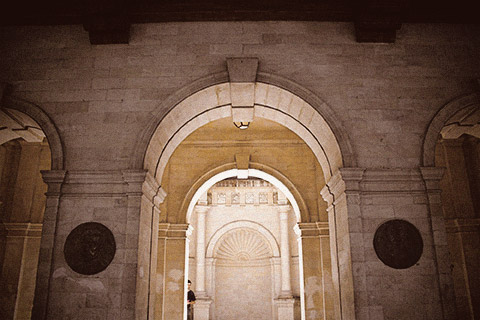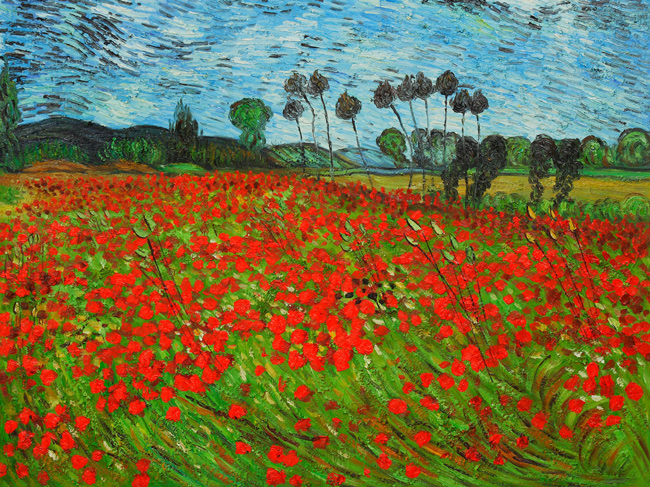Every Easter, Cathy, my wife and I would go to Crete. We stayed in an inn at the end of a dirt road that was run by the Grammatikakis family. After the fifth year we went, they put in a tarmac road, telephone poles and the whole landscape changed because of the region’s flourishing tourist industry.
We were sitting with an older gentleman at Grammatikakis one day and we discovered he knew Nikos Kazantzakis, the Greek author of Zorba and He Who Must Die. He explained that all the characters in Zorba were still alive on the island. They weren’t figments of Kazantzakis’ imagination. The adventures that took place in his novels were based on true events. This was a revelation for me. Kazantzakis really was a brilliant writer. In Iraklion, the capital of Crete, a museum recreated his office, utilizing all his original furniture as a memorial to him because he was so important to Greece.
At Easter, the villagers would slaughter a lamb, tuck dozens of cloves of garlic under the skin, and roast it on a spit over a fire. Everybody who was waiting for the meal took turns rotating the spit to keep it spinning. Oh, boy, that was delicious eating!
Once in Crete, we rented a little Volkswagon and were driving up north when the road degenerated into a riverbed, full of large stones. We were driving with a Cretan who instructed us to continue. He wanted to make it to the next village. We finally did arrive at the next village and we drove into a great big open square. Many of villages had these squares for fiestas and fairs and what not. We pulled up to a café, went in, ordered beer and coffee and asked for menu. They said they didn’t have a menu. We asked if we could order a meal, and requested lamb. He said, “Of course!”
We waited. It took a long time. We were drinking, eating pita, relishes, cucumber, onions and the like. It was marvelous. Finally, they brought the lamb and it was delicious. It dawned on me that after we had ordered the lamb, two youngsters had run out of the square and to a farmer who slaughtered the lamb, dressed it, brought the meat brought back to the restaurant and roasted it on a skewer.
The Cretans were reputed to be the most generous people in the world. So the story goes that two students were touring Greece, and decided to rest and have a little lunch in an orchard. The orchard had orange and fig trees, along with other fruit. They were being watched, unbeknownst to them, by a couple of Cretan farmers in the orchard adjacent to them. When the students reached up to pick some fruit, they noticed the farmers staring at them. In fear of being caught, the students began to run away. The farmers started screaming to them, “No. No. Don’t run away. Come steal from our orchard as well.” And that is the culture in Crete.
We went to another village in the north. There was a fountain in the middle of the town square which was fitting because the national drink in this region was water. Not cognac, not the pressing of their grapes, but water. They were so proud of their water that came out of this spring. So we drank the water and it was very rich with minerals and flavorful. It was icy cold coming from under the ground. We asked a farmer for directions and he invited us to his home. This peasant had no money but he had orchards and a garden. He served us wine, and later coffee and cognac. Everything he served us he grew. In town they had a baker with a huge stone oven that was heated with branches of fir trees. These small towns were permeated with the smell of baking bread and pine. Also, the women of these villages prepared casseroles for the late evening meal. They would bring the ceramic cooking dishes to the community oven and have the casseroles cooked with bread. It was a marvelous way of life.



